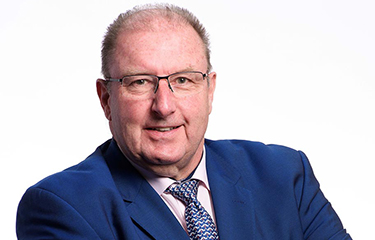SeafoodSource is closely following the sustainable seafood movement by compiling a regular round-up of sector updates pertaining to eco-certifications.
- Marine Stewardship Council Chair-Elect Hartwig Schafer passed away suddenly in early May. Hart, a former World Bank executive, was named the next chair of MSC's board of trustees in April 2023 and was due to take up his role as chair in late July 2023.
“We have been deeply shocked by the sudden death of Hartwig Schafer, MSC’s chair-elect. We were excited by his appointment as our new chair and the immense experience and expertise he would bring to the MSC," MSC CEO Rupert Howes said in a press release. "In the brief time we worked together, he had already begun to learn more about our organization and the wider landscape in which we work, and our priorities and ambitions for the future. We are profoundly saddened that we will not get to share our journey with him in the years ahead. Our thoughts are with his family and friends at this very sad time.”
- The Fishing Industry of Papua New Guinea (FIA PNG) announced on 12 May it has received approval to expand the geographical range of its Marine Stewardship Council fishing into the waters of the Parties to the Nauru Agreement (PNA) and Western Central Pacific Ocean waters. The assessment, completed by SCS Global Services and extended, gives it access to 750,000 metric tons of raw material including yellowfin, skipjack, and bigeye tuna, making it the world's largest MSC-certified fishery.
“Our current tuna fleet of 55 tuna purse-seiners is fishing inside the PNG exclusive economic zone and archipelagic waters. We are having good catches however, we applied for the geographical scope extension only because we do not know how climate change will influence the tuna stocks’ behavior and migration patterns,” FIA PNG President and Chairman Sylvester Pokajam said in a release.
- On 30 May, the Aquaculture Stewardship Council’s new Chain of Custody Module becomes effective and mandatory. This includes new requirements added to the existing Marine Stewardship Council (MSC) CoC certification to further strengthen the value and assurance of the ASC label.
Within the ASC CoC Module, companies that are involved in processing and/or packing must be certified to a Global Food Safety Initiative (GFSI) recognized scheme or ISO 22000, unless the organization is exempt based on size either by value, volume, or the number of staff. However, ASC is providing a one-year extension to the initial implementation timing for this part of the CoC Module, the food safety eligibility requirement. Companies will have to meet the food safety requirement after 30 May, 2024.
“ASC acknowledges the introduction of the food safety requirement may have a significant impact on companies that have not previously held food safety certification, and that obtaining such certification requires preparation, coordination with operational seasons and products, auditor availability, and may require modification of existing systems or investment in new ones. The intent of the grace period is to allow companies to remain chain-of-custody certified while they work towards achieving the new food safety certification requirement of the ASC CoC module,” ASC Head of Supply Chain Assurance Wendy Banta said.
- Additionally, on 17 May, ASC announced it is expanding its presence in South Korea.
There are now 73 ASC-certified farm sites in South Korea, including 28 seaweed farms, 44 abalone farms, and one shrimp farm, with overall annual ASC-certified volumes of more than 11,000 metric tons.
“The uptake of responsible seafood farming practices in South Korea is a boon for responsible aquaculture in Asia and around the world,” ASC Global Market Development Director Esther Luiten said. “South Korean distributors and brands like CJ Freshway, IKEA, Lottemart, and Olga have made commitments to ASC certification that are creating real change in the retail market.”
In December 2022, ASC hired Martin Lee to serve as its general manager in South Korea, it said in a press release.
“I’m very pleased to see how ASC certification is making South Korean aquaculture products more competitive within the global market,” Lee said in a press release. “South Korea is a major producer of seaweed, and ASC certification is giving Korean farms a way to meet international market demands for seaweed that is responsibly produced.”







